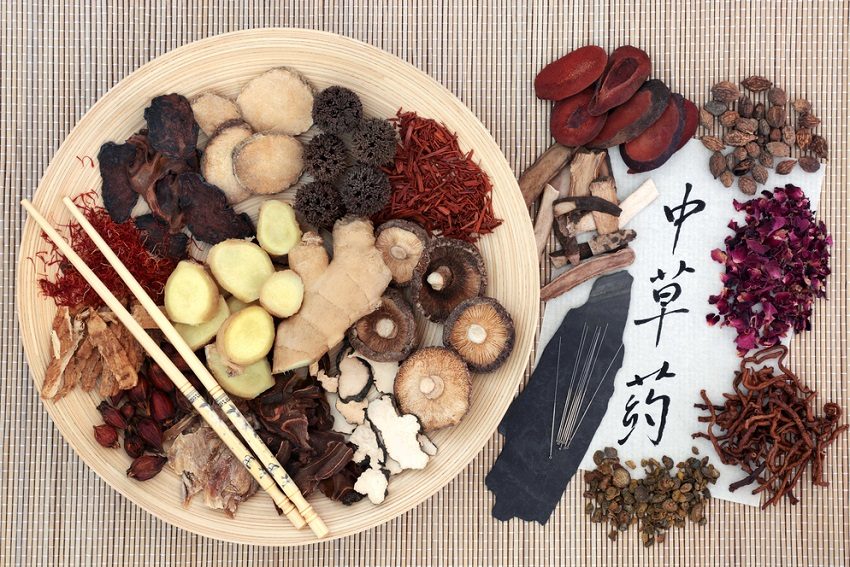Will the University of Adelaide's Chinese Medicine Partnership Bear Fruit?

The University of Adelaide recently announced the launch of the Beijing-based Global Institute of Traditional Medicine. The institute is a collaboration between the University of Adelaide, the Jiangxi University of Traditional Chinese Medicine, the Shanxi University of Traditional Chinese Medicine, and Heilongjiang University of Chinese Medicine.
Traditional Chinese Medicine (TCM) is founded on a number of ancient beliefs about the human body and human health that are markedly different to those of Western medicine. In TCM, the human body is seen as a microcosm of its environment, whose health is influenced by the balance of the opposing and complementary forces of yin and yang. Health is also maintained, or threatened, by the flow of Qi (or ‘chi’) through the body. Stages of disease are claimed to be tracked and described using the symbolism of the five elements of fire, earth, wood, metal and water.
Based on these principles, TCM uses herbal medicines and mind and body practices (e.g. acupuncture, tai chi) to treat and prevent disease. The University of Adelaide’s new research collaboration aims to investigate the utility of TCM treatments for issues such as glucose intolerance and gut health.
As potentially exciting and unexpected as this all may seem, this isn’t the first collaboration between this sandstone powerhouse and our Eastern medicine counterparts.

The university announced the launch of the Global Institute of Traditional Medicine in December 2016
The University of Adelaide has hosted the Zhendong Australia-China Centre for Molecular Traditional Chinese Medicine, funded by the Zhendong Pharmaceutical Company, since 2012. Shortly before the launch of the new institute, researchers from the Zhendong centre published a paper in Oncotarget showing how a TCM compound KuShen injection (CKI) can kill cancer cells. The CKI reportedly affects the same gene expression pathways as (traditional Western) chemotherapy, but acts on different genes. From a systems biology perspective (wildly simplified as ‘the whole is greater than the sum of its parts’), it is thought that the combination of plant compounds in CKI interact to increase the overall efficacy of the treatment.
So, how does it actually work? And what are the advantages over the use of, admittedly awful, chemotherapy? Well, as Professor Adelson, the head of the Zhendong Australia-China Centre for Molecular Traditional Chinese Medicine, says in regards to the apparent therapeutic benefit of TCM: “there isn’t the understanding of how or why”.
Indeed, given the advanced age of TCM practice, and the apparent plethora of anecdotal evidence in its favour, scientific evidence for the effectiveness and underlying mechanisms of TCM is in comparatively short supply. In 2009, a group of researchers published a review of all existing Cochrane reviews concerning TCM. Cochrane reviews are thorough, systematic reviews of human health research, and are universally accepted as a gold-standard evidence-based healthcare resource. The authors reported that the majority of the reviews of acupuncture studies and approximately half of the reviews of herbal medicine research found insufficient evidence for the efficacy of each treatment. The remaining studies from each field hinted at some benefit, but were acknowledged as lacking in methodological rigour.

Though long-practiced, there is scant scientific evidence proving the efficacy of acupuncture
In light of such underwhelming results it seems timely that the University of Adelaide have joined other Australian universities in addressing the World Health Organisation’s 2014–2023 strategy to understand and strengthen the role of traditional medicine in population health. In a press release about the University of Adelaide collaboration, Professor Julie Owens, Director of the Global Institute of Traditional Medicine and the University of Adelaide’s Pro Vice-Chancellor (Research Strategy) said of TCM practices, “we need scientifically rigorous testing of the safety and efficacy, or not, of these medicines”.
However, it has also been proposed that the research techniques and stan dards used to evaluate western medicine may not be methodologically appropriate in the context of TCM interventions. This has led to what was described by Nature journal as a “complex, tentative dance” between researchers, healthcare practitioners and pharmaceutical companies. This has understandably also lead to great scepticism on behalf of those for whom science and medicine must exist on a foundation of rigorous evidence.
In the words of Tim Minchin: you know what they call alternative medicine that’s been proved to work? Medicine. In the face of ever-increasing antibiotic resistance, here’s hoping that this new collaboration finds and proves new medicines, in the tradition of cinchona bark becoming quinine, foxglove becoming digitalis, and Artemisia becoming artemisinin.
Dr Jessica L Paterson is a Senior Research Fellow at CQUniversity in the Appleton Institute